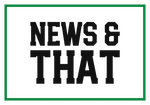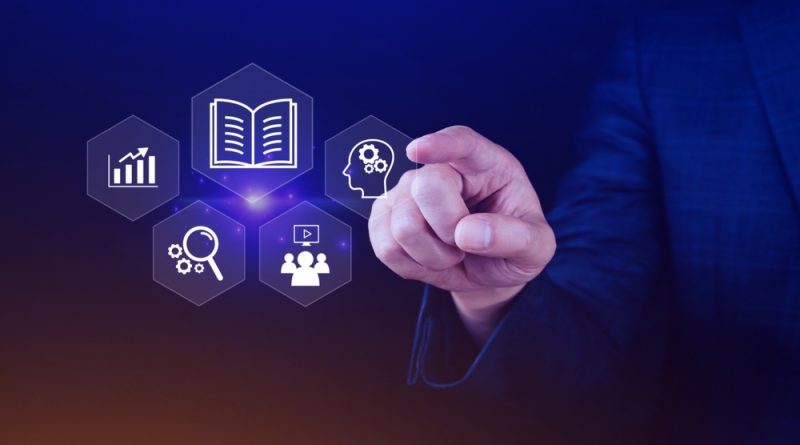Why You Need To Know What You Don’t Know
Understanding what you don’t know is crucial in both business and personal contexts. This awareness fosters growth, innovation, and continuous improvement. In business, knowing what you don’t know, knowing your gaps can drive strategic decisions and prevent costly mistakes.
On a personal level, recognizing your knowledge gaps promotes self-improvement and enhances your ability to navigate challenges.
In business, identifying knowledge gaps helps in personal and team development. For instance, a manager might excel in leadership but lack financial expertise.
Acknowledging this gap allows them to seek training or consult experts, leading to better decisions. In other words, understanding your limitations lets you leverage others’ strengths, fostering a collaborative work environment.
On a personal level, knowing what you don’t know encourages a lifelong learning mindset. For example, you might realize you lack skills in cooking or a foreign language. By acknowledging this, you can take steps to learn and grow.
This self-awareness leads to a more fulfilling life as continuous learning opens new opportunities and experiences.
Altogether, recognizing your knowledge gaps is a powerful tool for personal and professional development. It encourages learning, fosters collaboration, and enhances decision-making. So, embrace the unknown, seek out new knowledge, and watch as your life flourishes.
The Importance of Recognizing Knowledge Gaps
Understanding the importance of acknowledging what you don’t know can transform your approach to both business and personal life. It encourages continuous learning and improvement.
For instance, in a business context, knowing your limitations helps you seek expertise and make informed decisions. In personal life, it fosters growth and resilience.
Enhancing Decision-Making in Business
In the business world, decision-making is crucial. Recognizing knowledge gaps can significantly enhance this process. For instance, if you lack financial acumen, acknowledge it. Seek guidance from financial experts and use opportunities to educate yourself.
This approach ensures you make informed, strategic decisions. It reduces the risk of costly mistakes and improves overall business performance.
Another important aspect is collaboration. Understanding what you don’t know can lead to better teamwork.
You will be more open to others’ expertise. This fosters a collaborative environment where team members feel valued. It improves productivity and leads to innovative solutions.
Personal Growth and Development
In personal life, knowing what you don’t know is equally important. It encourages a mindset of lifelong learning. This mindset drives you to acquire new skills and knowledge.
For instance, if you realize you lack cooking skills, you can take a cooking class. This not only improves your life skills but also boosts your confidence.
Acknowledging your limitations can also enhance your relationships. It makes you more open to others’ perspectives.
This openness fosters better communication and understanding. It leads to stronger, more meaningful relationships.
Leveraging Knowledge for Continuous Learning
Continuous learning is essential in both professional and personal contexts. Recognizing what you don’t know is the first step. It drives you to seek new information and skills.
For instance, in a rapidly changing industry, staying updated is crucial. Identify your knowledge gaps and address them through training and research.
In personal life, this approach is equally beneficial. It keeps you curious and engaged. It encourages you to explore new hobbies and interests.
This continuous learning enriches your life and keeps your mind active.
Improving Problem-Solving Skills
Effective problem-solving requires a clear understanding of the problem. Knowing what you don’t know helps you identify the root cause of issues. I
f a project is failing, recognizing your lack of expertise in a certain area can help you seek the right help. This approach ensures you address problems effectively and efficiently.
In personal life, this can help you tackle challenges more effectively.
Acknowledging your limitations allows you to seek appropriate solutions. It helps you navigate life’s challenges with confidence and resilience.
Fostering a Growth Mindset
A growth mindset is essential for success and fulfillment. Understanding your knowledge gaps fosters this mindset. It encourages you to view challenges as opportunities for growth.
For example, if you struggle with public speaking, acknowledge it and work on it. This mindset leads to continuous improvement and greater achievements.
Building Stronger Teams
In a professional setting, understanding what you don’t know can help build stronger teams. It encourages you to hire individuals with complementary skills.
If you lack marketing expertise, hire a skilled marketer. This approach ensures a well-rounded team that can tackle diverse challenges.
It also fosters a culture of humility and openness. Team members feel valued and respected. It leads to better collaboration and a positive work environment.
Enhancing Communication Skills
Effective communication is crucial in both business and personal contexts. Knowing your limitations can enhance your communication skills.
It makes you more open to feedback and others’ perspectives. This openness leads to clearer, more effective communication.
As an example, in a business meeting, acknowledging your lack of knowledge on a topic can encourage others to share their expertise. It fosters a collaborative discussion that leads to better solutions.
Encouraging Innovation and Creativity
Innovation and creativity thrive in an environment of continuous learning. Understanding what you don’t know encourages you to explore new ideas and perspectives.
In a creative project, recognizing your limitations can lead to seeking new inspirations and techniques. This approach fosters innovation and leads to unique, creative solutions.
Strengthening Resilience
Resilience is important in both professional and personal life. Knowing your knowledge gaps strengthens your resilience. It prepares you to face challenges with a proactive approach.
If you lack certain skills, acknowledging this allows you to develop a plan to acquire them. This preparation makes you more resilient to setbacks.
Final Thoughts
Embracing the concept of “knowing what you don’t know” transforms both your personal and professional life. This mindset encourages continuous learning and growth. In a business context, it enhances decision-making by recognizing limitations and seeking expert advice. This approach reduces errors and drives success.
In addition, acknowledging your knowledge gaps fosters collaboration. It creates a culture where team members feel valued for their expertise. This environment leads to innovative solutions and improved productivity. Moreover, it promotes a growth mindset, viewing challenges as opportunities for development.
In your personal life, this awareness boosts self-improvement. It drives you to learn new skills and acquire knowledge. This continuous learning enriches your life and keeps you engaged. Furthermore, it strengthens relationships by fostering open communication and understanding.
By understanding what you don’t know, you enhance problem-solving skills. You identify root causes of issues and seek appropriate solutions. This approach ensures efficient and effective problem resolution. It also strengthens resilience, preparing you to face challenges with confidence.
Effective communication is another benefit. Knowing your limitations makes you more open to feedback and others’ perspectives. This openness leads to clearer, more effective communication. In a professional setting, it encourages collaborative discussions, leading to better solutions.
Innovation thrives in an environment of continuous learning. Recognizing your knowledge gaps encourages exploration of new ideas and techniques. This approach fosters creativity and leads to unique, innovative solutions.
In conclusion, understanding what you don’t know is a powerful tool for growth. It enhances decision-making, fosters collaboration, and drives continuous improvement. By embracing this mindset, you unlock potential for greater success and fulfillment in all aspects of life.
Written with Support from ChatGPT by OpenAI
Photo Credit: MR.RAWIN TANPIN/shutterstock.com

